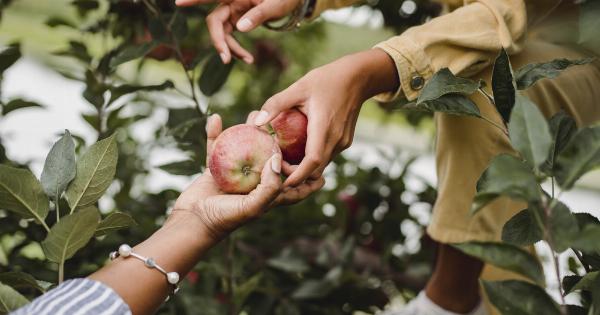Skin itching may seem like a minor problem, but it can cause plenty of discomforts, especially if it persists. Scratching or rubbing the affected area can lead to skin damage and even infections.
While conventional treatments like lotions and antihistamines help treat itching symptoms, some simple dietary modifications can bring significant relief.
Incorporating certain vegetables in your diet can help reduce skin itching symptoms, thanks to their anti-inflammatory and anti-oxidative properties. Here are some of the vegetables you should consider eating to relieve itching.
1. Cucumber
Cucumber is a crispy and refreshing vegetable that’s over 90% water content. Cucumbers are an excellent source of vitamin C, vitamins K, and minerals like potassium and magnesium.
They also contain antioxidants that help reduce inflammation and irritation on the skin.
To use cucumber, cut it into slices and place them on the affected itchy areas. The cool properties in cucumber help numb the skin and reduce redness and swelling.
You can also eat cucumbers as a snack, add them to your salad or blend them into smoothies.
2. Onion
Onions are edible bulbs that are used in many savory dishes. They’re rich in antioxidants and essential nutrients like vitamins C, B6, and folate.
Onions also contain quercetin, a flavonoid with potent anti-inflammatory properties that help combat skin irritation and itching.
To utilize onions as a remedy for skin itching, make a paste by blending or crushing an onion, applying it on the affected area, and then rinsing it off after a few minutes.
Alternatively, adding onions to your favorite dishes can supply you with beneficial quercetin and other phytonutrients.
3. Carrots
Carrots are crunchy root vegetables that are rich in beta-carotene, an essential carotenoid converted into vitamin A in the body.
Vitamin A plays a vital role in maintaining healthy skin, promoting cell growth and repair, and reducing inflammation and oxidative stress.
Eating carrots regularly can help keep your skin healthy and supple while preventing itching and other skin issues. You can add carrots to your salads, stews, roasted veggies, or enjoy them as snacks.
4. Spinach
Spinach is a leafy green vegetable packed with essential vitamins and minerals like vitamins A, C, K, folate, and minerals like iron and calcium.
Spinach also contains flavonoids and antioxidants that help alleviate inflammation and oxidative stress on the skin.
Consuming spinach regularly can help provide your body with vital nutrients that support healthy skin and reduce itching. You can add spinach to your salads, smoothies, omelets, or sauté them and serve with your favorite dishes.
5. Sweet Potato
Sweet potatoes are starchy root vegetables that are rich in vitamins A, C, and B6, fiber, and essential minerals like potassium and copper.
Sweet potatoes’ bright orange color comes from their beta-carotene content, which helps promote healthy skin and immune system function.
Eating sweet potatoes can also help reduce inflammation and improve the skin’s appearance, reducing itching and irritation of the skin. You can add sweet potatoes to your stews, casseroles, or roast them and serve as side dishes.
6. Beetroot
Beetroot is a sweet and colorful root vegetable known for its potent anti-inflammatory and antioxidant properties.
Beetroot is rich in betalains, which help combat inflammation, reduce oxidative stress and improve collagen synthesis, keeping the skin vibrant and healthy.
You can use beetroot to relieve skin itching by boiling and mashing it into a paste and applying it to the affected area.
Drinking beet juice or adding beetroot to your salads and soups supplies your body with an army of essential nutrients that promote healthy skin.
7. Broccoli
Broccoli is a nutrient-dense vegetable that provides a source of vitamins, minerals, fiber, and antioxidants.
Broccoli is an excellent source of glucoraphanin, a phytochemical converted into sulforaphane, which has powerful anti-inflammatory properties and helps detoxify harmful toxins from the skin.
Consuming broccoli regularly can reduce inflammation, oxidative stress, and itching, promoting healthy skin. You can roast, steam, or stir-fry broccoli and serve it with your favorite dishes.
8. Red Bell Pepper
Red bell peppers are sweet and juicy fruits that are packed with antioxidants like vitamin C, vitamin A, and essential minerals like folate and potassium.
Red bell peppers also contain capsaicin, a compound that helps alleviate inflammation, pain, and itching.
Adding red bell peppers to your diet can help reduce itching symptoms and promote healthy skin. You can roast them, sauté them, or eat them fresh in your salads, soups, or sandwiches.
9. Garlic
Garlic is an edible bulb with a pungent flavor and is a popular ingredient in many savory dishes.
It contains allicin, a compound with potent anti-inflammatory and antioxidant properties that help relieve itching, stiffen the immune system, and treat acne and other skin issues.
You can use garlic by crushing and mixing it with some honey and apply the paste to the affected itchy area. Eating garlic regularly can also supply you with essential nutrients that support healthy skin and combat inflammation.
10. Tomatoes
Tomatoes are a juicy and savory fruit rich in vitamins A, C, K, and lycopene, a potent antioxidant that reduces inflammation and oxidative stress on the skin.
Tomatoes also contain salicylic acid, a compound with anti-itching and anti-inflammatory properties that helps reduce skin redness and swelling.
Eating tomatoes regularly can provide your body with essential nutrients that support healthy skin and reduce itching and other skin issues. You can add tomatoes to your salad, sandwiches, soups, or sauces to enjoy their health benefits.
Conclusion
If you’re struggling with skin itching, adding these vegetables to your diet can help alleviate the discomfort and reduce inflammation and irritation on the skin.
Incorporating these vegetable remedies into your daily routine can offer relief, improve the skin’s health and appearance, and prevent itching in the long run.






























